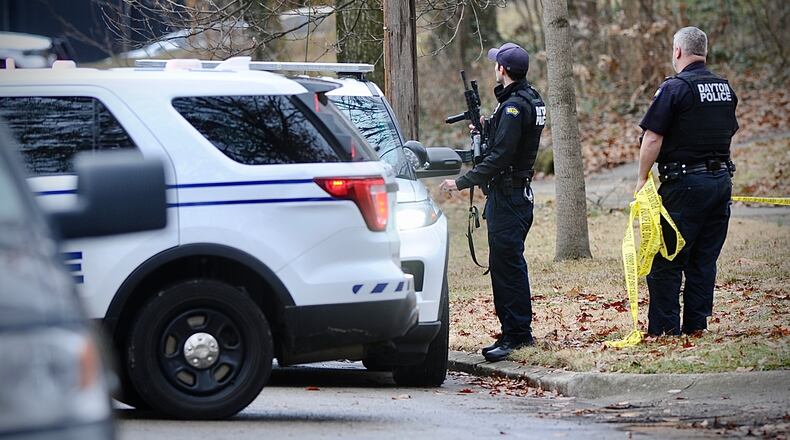“It doesn’t make sense,” he said. “It is very difficult when you work for an employer who doesn’t put your best interests and your needs and your well-being and your benefit at the front of their priorities. When they make you have to come to work to battle them to get what is owed to them, it does not create a good work environment.”
Dayton City Manager Shelley Dickstein said the city has requested conciliation because there is no “meeting of the minds” about the pay step portion of what she called a tentative agreement.
“The city is not denying or attempting to undo the contract as no contract has been signed,” she said. ”The tentative agreement has been ratified by FOP and the city. What is in dispute is the meaning and application of the pay steps.”
On Sept. 4, attorneys for the city of Dayton sent a message to the State Employment Relations Board (SERB) asking the agency to schedule a joint conciliation between the city and the Dayton Fraternal Order of Police Lodge #44.
The message says the city and the FOP have “fundamentally different meanings to material terms in the tentative agreement.”
The Dayton City Commission in June voted to accept proposed collective bargaining agreements with the city’s two police unions after a fairly long contract dispute. The unions’ last contracts expired at the end of 2023.
Contract negotiations were at an impasse earlier this year but the parties agreed to new labor agreements before the matter was set to go to conciliation for a final determination.
Dayton police Sgt. Thomas said the city is now claiming that the salary structure it approved for its police officers is different than what is stated in the agreement.
Dayton police officers’ pay is based on their time of service.
In the police union’s last contract, there were eight pay steps, with 1 being the lowest and 8 the highest.
Officers earned step 1 pay at their appointment. They graduated to step 2 pay after six months; step 3 after 18 months; step 4 after 30 months, all the way up to step 8, after 78 months.
The new agreement eliminated the three lowest steps, meaning officers start with a higher pay.
A final tentative agreement reached between the FOP and the city in June has an attachment that suggests that starting in 2024 police officers would start at roughly used to be step 4 pay.
The salary table indicates that officers graduate to step 5 pay after 12 months; step 6 pay after 24 months; step 7 pay after 36 months; and step 8 pay after 48 months.
Credit: Marshall Gorby
Credit: Marshall Gorby
Thomas, however, says the city now claims that officers will only graduate to higher pay steps when they reach a made-up “step anniversary” that was never discussed during contract negotiations.
The city right now has half of police officers in the wrong pay steps, Thomas said. The police department has about 252 officers, which does not count supervisors.
“They put them in pay steps lower than their months of service,” he said.
Thomas said the city claims that officers will reach a step anniversary based on when the agreement went into effect (Jan. 1, 2024) instead of based on the officers’ length of service.
“We have never had a step anniversary — that’s not a thing here,” he said. “You have a seniority date.”
Thomas said the union agreed to the salary structure in the agreement because the police department has struggled to retain its officers and higher pay will help with retention.
Contract disputes that cannot be resolved internally are supposed to go to a third-party arbitrator, and not SERB, Thomas said. He said SERB no longer has jurisdiction after collective bargaining agreements have been approved.
The FOP has a filed a motion with SERB asking the agency to dismiss the city’s request for conciliation.
City Manager Dickstein said the city wants to resolve this matter as quickly as possible to ensure officers receive all of the money they are due, such as retroactive pay.
“I want to make sure we get to some constructive resolution because the employees are caught in the middle of this,” she said.
Dickstein noted that a significant amount of money could be at stake in this dispute.
About the Author


